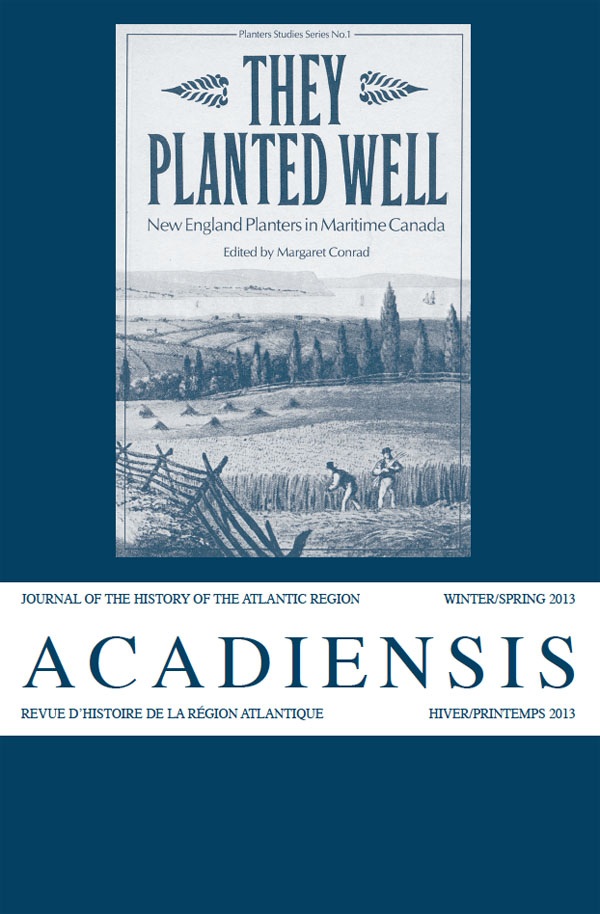Abstract
This article compares marshland colonization in Acadia and France during the 17th century. It begins with an analysis of why the initial attempts to colonize marshlands failed. It then compares the later, successful initiatives at Port Royal, in Acadia, and the Poitevin Marsh, in France. Although they had very different objectives and tackled very different environmental challenges, both groups effectively organized their activities and used innovation in adapting old techniques. What made Acadian marshland farming distinctive was its small scale and its dispersed, decentralized nature. Both initiatives demonstrate how successful marshland colonization was a profoundly local endeavour.Copyright for articles published in this journal is retained by the author(s), with Acadiensis being granted a non-exclusive licence to each and every right in the work throughout the world. After publication of the work, the author(s) shall have the right to self-archive the work and to reprint the work in whole or in part in books authored by or edited by the author(s) without the payment of any fee. In these other formats, however, the author or authors are required to acknowledge the original publication of the work in the pages of the journal. In the case of any requests to reprint the work, Acadiensis will require a standard permission fee -- to be divided equally between the journal and the author. In the event that such requests are received by the author(s), the author(s) shall direct such requests to the journal.

